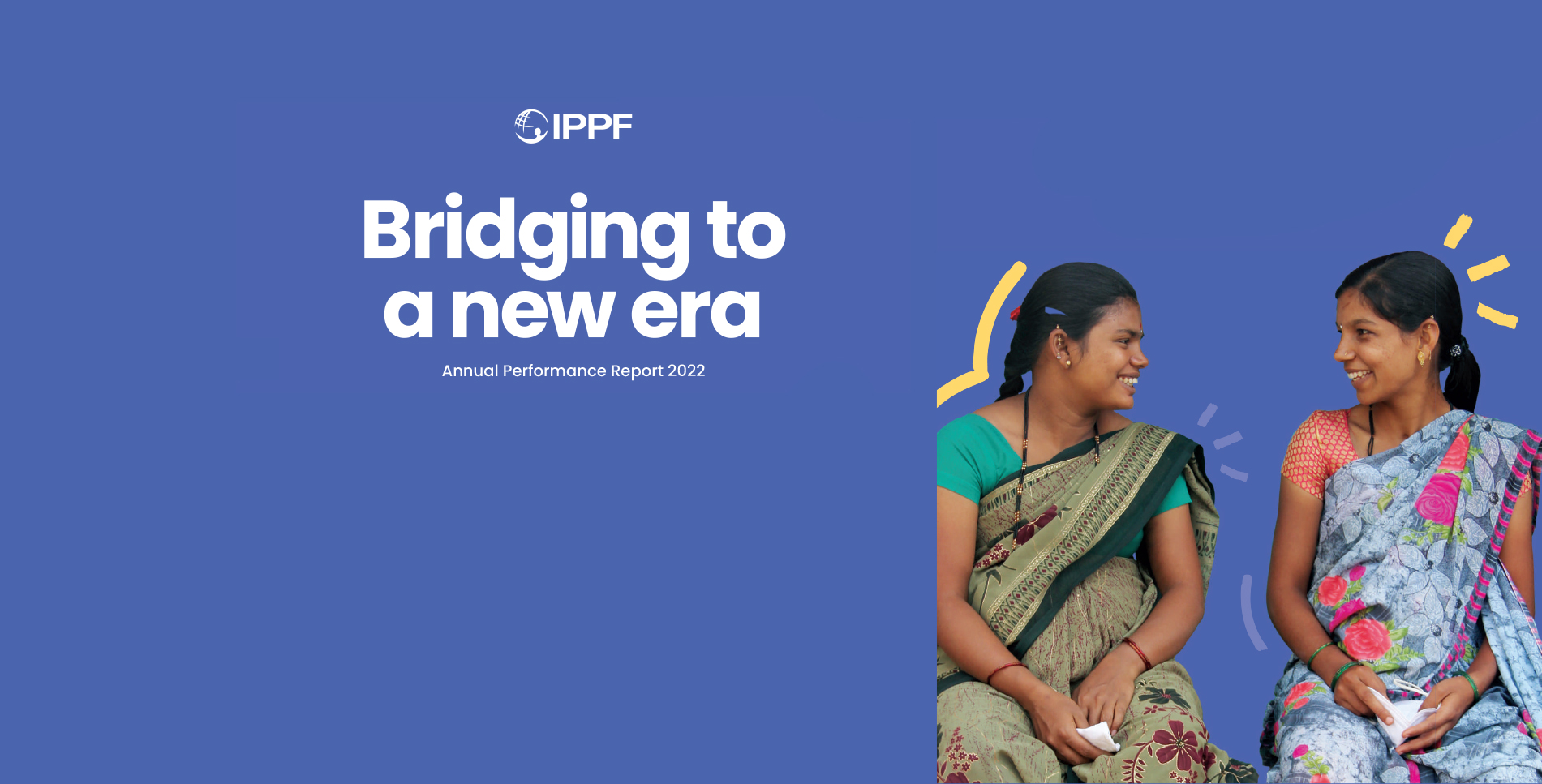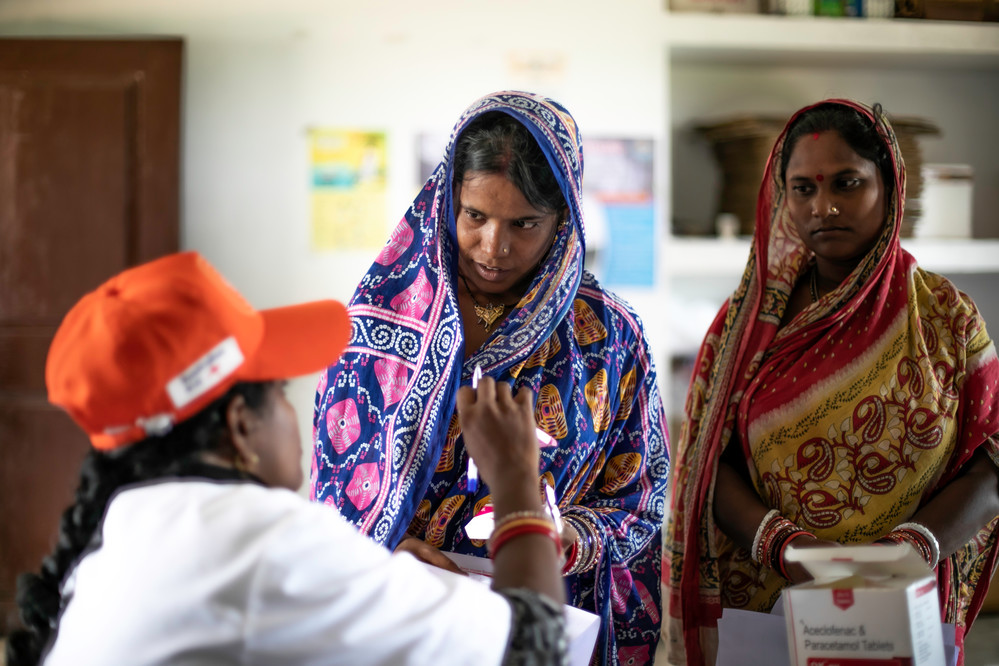Spotlight
A selection of resources from across the Federation

2022 Annual Performance Report
Bridging to a new era.
Filter our resources by:

| 29 September 2020
Nepal Government approves home use of medical abortion services though certified providers ensuring access to safe abortion services during COVID-19
Big Victory: Nepal Government approved home use of medical abortion services though certified providers ensuring access to safe abortion services during COVID-19 IPPF welcomes the decision of the Ministry of Health (MoH), Nepal to endorse and approve the final MNCH guidelines that allow home-based Medical abortion through outreach model and telemedicine. This is a life-saving decision for many women and girls in need of service but facing the mobility and accessibility-related barriers owing to COVID19. Many congratulations to Family Planning Association of Nepal and partner CSOs part of the Large Anonymous Donors (LAD) consortium for their contributions and partnership with Family Welfare Division, Nepal. Read more about abortion services during COVID-19: South Asia experiences https://www.ippfsar.org/resource/enabling-abortion-services-during-covid-19
| 29 September 2020
FPAI provides training and healthcare to female inmates in India
India is home to 20 female-only prisons, that have the capacity to hold just 5,000 inmates. Women currently make up 4% of India's prison population. Before they reach prison, many women have already experienced sexual and gender-based violence. Many inmates face discrimination and are often ostracized from their community and their families once they are released. Realizing a gap in care for women once released, IPPF's Member Association The Family Planning Association of India (FPAI) have stepped in to ensure women are equipped with not only healthcare whilst in prison but life training skills. Skills that will financially support them and their children with or without the support of their families. Established in 1949, the Family Planning Association of India has provided life skills training ranging from beauty parlor related work to car mechanics to 768 women in six locations.
| 24 August 2020
Narrative Report Business Continuity Fund
Acting on the urgency to ensure sustainability of regular Memnber Associations' activities, IPPF SARO promptly designed a bridging fund for business continuity during COVID-19. The report studies the utilization of these business continuity funds from April - June 2020. Despite the threat of COVID-19, members are are finding ways to provide Sexual and Reproductive Health and Rights through targeted operational hours of clinics, tele-counselling and community outreach in compliance with social distancing norms. Despite these innovations and proactive initiatives, the last three months (April to June 2020) have seen an estimated 60-70 per cent reduction in overall clinic services.

| 11 August 2020
IPPF SARO ANNUAL REPORT 2019
MESSAGE FROM THE LEADERSHIP In the times to come, we will remember 2019 as the stepping stone for the beginning of an agile and evolved IPPF. Acknowledging the place where IPPF was established, India was chosen as the venue of the historic General Assembly of IPPF in November 2019. The meeting where more than 320 delegates (including Presidents, youth representatives, and Executive Directors) from 124 Member Associations (MAs), representing more than 90% of MAs in the Federation, reached consensus on all variety of recommendations for reforming IPPF’s governance structure and resource allocation system. We are hopeful that the reform will not only boost services but also help us to bring a change in lives of the most marginalized. It is important to mention that South Asia is home to around one-fourth of the world’s population, making it one of the most populous and dense regions in the world. A demographically and developmentally diverse region, South Asia continues to be one of the regions with high rates of unplanned pregnancies, maternal deaths, unsafe abortions, child marriages, and sexual trafficking and violence. With multitude of these challenges that exists in the region, our Member Associations are doing a remarkable job in raising voices and providing services for the most marginalized and under privileged. In 2019, through MAs, IPPF SARO provided SRHR services to more than 10 million people through its 15,733 service delivery points. We take pride in saying 55.5% of the IPPF owned service delivery points are in rural or peri-urban areas. Out of the total sexual and reproductive health services, 8.46 million (78%) services were provided to the underprivileged and vulnerable people and 3.5 million (32.4%) to young people. The services to youth represent 32.4% of total service provision and illustrates IPPF’s continued commitment to the largest ever generation of young people.

| 04 August 2020
Financial Statements 2019
The overall group income of IPPF has risen by US$51.8 million (46 per cent) to US$163.7 million (2018: US$111.9 million). Unrestricted total income and restricted income rose by US$1.9 million and US$49.86 million respectively. IPPF’s main source of funding is government grants, which account for 88 per cent (2018: 81 per cent) of total income. In 2019 unrestricted government funding increased by US$2.2 million (4 per cent) to US$57.4 million. The main reason for the increase in funding in 2019 was the increase in funding from Germany which rose from €6 million to €12 million. Restricted government funding amounted to US$87 million, up from US$35.2 million in 2018. A full analysis of restricted projects balances. The following Governments were the major contributors to the restricted funding of IPPF: Government of United Kingdom,through the WISH programme in Africa, South Asia and the Arab World US$59.23 million, the European Commission supported the State of African Women Campaign US$4.6 million, Government of Canada US$4.3 million, Government of Australia continued to provide support (US$2.4 million) in relation to the global SPRINTInitiative to provide sexual and reproductive health services to crisisand post crisis areas in South East Asia, the Pacific, South Asia andGovernment of Belgium contributed to the SHE Decides project US$2.07 million. The governments of the Netherlands, Norway, UK and an anonymous donor also provided funding of US$5.64 million to the Safe Abortion Action Fund. Grants from multilateral donors and other sources decreased by 13 per cent from US$20.7 million to US$18.1 million. A significant factor in the decrease was US$0.6 million from GIZ, US$0.26 million from Anonymous donors, and US$0.7 million decrease from the David and Lucile Packard Foundation.
| 20 July 2020









